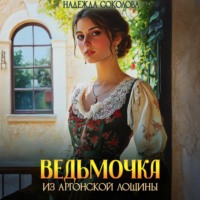
Полная версия
Myths in our Life
Here are some examples:
a). miss Beilis, the president of the National Society named "The Daughters of the American Revolution" in Washington defined the essence of the given mythologemes in the following words: "I can not so directly say what "an American Dream" is. Everything I can say is to love your country. When an American flag blows on the parade my heart is overfilled with proud and I feel happy" [Ibid.: 282];
b). Bob Braun, colonel of reserve, noticed: "For me "an American dream" is an increase of the USA prestige all over the world" [Ibid.: 282].
A lot of Americans trying to reach "an American dream" seek only fame and wealth. They chase the material values absolutely forgetting about spiritual values. This leads, at the end, to the solitude, different phobias and dissatisfaction of life.
Here is just one example: Mrs. Beilis, the president of the National Association of Daughters of the American Revolution in Washington, defines the essence of this mythology in this way: “I cannot say directly what the“ American dream ”is. All I can say is: love your country. When the American flag is fluttering in the parade, the heart overflows with pride and you feel happy ”[Ibid: 282];
Many Americans, trying to achieve the "American dream", strive only for fame and well-being. They chase after material values, completely forgetting about spiritual ones, which ultimately leads to loneliness, various “phobias” and to dissatisfaction with life.
The Cinderella myth in the US culture is often mixed with the myth of the Ugly Duckling and the myth of Jonny– the-Fool, which leads to confusion in minds and moods. Nowadays a modern American "Cinderella" is an ordinary average person from a poor family. Thanks to his/her perseverance and loyalty to the American system of values, this person finds the place in this life, achieving what was dreamed about in the youth (eg, his/her own house, expensive car, prestigious work with possible career growth and high salary, etc.) It is this situation that can be called “grinding the“ myths ”, because it mixes up the characteristics of the heroes of all the mythologists considered in the work, which makes it difficult to crystallize the“ myth ”that was originally laid down in the human subconscious.
The myth of Jonny– the-Fool also acquired features of other myths. A young man from a small provincial town aims to get all the benefits from life. He goes to the metropolis, where, using all means at his disposal, he tries to achieve the “American dream”. As a result, he gets what he wants, but he may feel dissatisfied, because the spiritual side of his life is likely to remain unaffected.
In American "mythology" there is such a thing as a self-made man. This is the fusion of all three myths into the one and the creation of a completely new image, the image of a “man who“ made ”himself”, an individual who by his work won himself the right to live according to the “American dream”.
It is necessary to clarify that when we talk about people who achieves the ideals of the “American dream”, we often mean ordinary people who wants something extremely small, small things that would not occur to well-known personalities because the whole “American dream” is the dream of a man in the street, striving for a quiet, prosperous, peaceful life, willing to live without any worries and anxieties.
You shouldn’t think that the “business above all” position which is prevalent among the majority of American youth, is a phenomenon of the 20th century. The beginning of everything was laid in the XIX century, when mass literature began to flourish in the United States. The authors of the textbook "History of Literature of the USA", published by the Institute of World Literature. A.M. Gorky, consider that the mass literature includes “works of a low aesthetic level, designed for a wide audience and reflecting the mentality of the middle strata of society” [Literature in the USA 2003: 836]. Necessary and inalienable features of mass literature as such – formula, cliché, mythology – were noticeable in the first literary production of the colonial era (travel notes, religious sermons, political pamphlets, etc.). Puritan thinking has already created a number of national myths, even in the XVII century. The facts of American history – the creation of colonies in the New World, the development of a frontier, and the war with the Indians – were conceptualized in the formulas of heaven and hell, the building of the city of God, the struggle of angels and demons. In this literature were formed persistent concepts, ideas, images and techniques, which determined the face of all national literature, and in their simplified, elementary forms – the face of the modern mass American culture. The artistic heritage of the frontier spawned the national genre of westerns; Puritan literature became the source of a religious, and in many ways a romantic novel; “The American dream and personal success was embodied in the narratives about“ the man who created himself ”; the cult of the family and the hearth was reflected in the "family romance".
The center subject of mass literature became the myth of a simple American, a man of the people who, with the help of labor and virtue, could achieve the material wealth in his life. The ideal of “a man who created himself” became the formula of American success in a historical context. For example, during some time a special magazine “Success” (“Success”) was published, it promoted the book “Acre of Diamonds” in 1888, in which the author assured readers that the diamonds could be found everywhere, even in their own backyard. Next year, Andrew Carnegie's book, The Gospel of Wealth, was published. It in an instructive tone described his way to a millionth state.
The books of Horatio Alger, which served as a model of educational literature for boys, were also very popular. About 130 of his novels describe poor adolescents who, after a lot of vicissitudes in life, managed to succeed in business. The formula of Cinderella (or Zolika, as Levi-Strauss has onece called it) fairy-tale was transformed into American style and absorbed the national myths of “self-confidence,” “self-creation,” “American dream,” Franklin's commandments, and puritan virtues. On their basis, the ethics of a new middle class that appeared was formed and approved. The tytles of the Elger books are specific: “Work and win,” “Strive and succeed,” “Do and dare,” “Swim or drown.” Part of his writings Alger released in series ("Luck and Courage", "The Ragged Tom", etc.). There still exists the society of Horeyshio Alger, which annually presents prizes to people who succeeded on their own (one of them was Dwight Eisenhower, the future president of the United States of America).
Конец ознакомительного фрагмента.
Текст предоставлен ООО «ЛитРес».
Прочитайте эту книгу целиком, купив полную легальную версию на ЛитРес.
Безопасно оплатить книгу можно банковской картой Visa, MasterCard, Maestro, со счета мобильного телефона, с платежного терминала, в салоне МТС или Связной, через PayPal, WebMoney, Яндекс.Деньги, QIWI Кошелек, бонусными картами или другим удобным Вам способом.









